The College of Liberal Arts and Sciences is pleased to announce the winners of a competition for five new Graduate Assistantships in Writing, Editing and Community Engagement.
These new graduate assistant positions, part of a five-year pilot project, provide doctoral students opportunities to participate with the college’s outreach, engagement, and writing missions in ways designed to diversify and transform graduate career preparation.
Writing Research Assistantship for the Magid Center for Undergraduate Writing
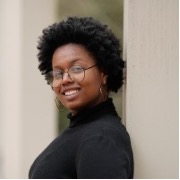
Alyssa D. “Adare” Smith, a PhD student in English, was awarded the 50% effort graduate assistantship for the Magid Undergraduate Center for Writing where she will offer outreach and promotional support for various programs and endeavors across multiple platforms.
In her submission, Smith described how her personal interest in public-facing education and outreach compelled her to apply for the Magid Center writing research assistantship:
“I am passionate about providing and advocating for accessibility, and this assistantship is in line with those values. This opportunity is uniquely positioned to teach me more about the services of the university and will allow me to easily network with like-minded individuals who are dedicated to positively impacting our campus community.”
Editing Research Assistantships
CLAS also awarded two (2) 50% effort Editing Research Assistantships to assist faculty who serve as editors-in-chief to selected prestigious academic journals
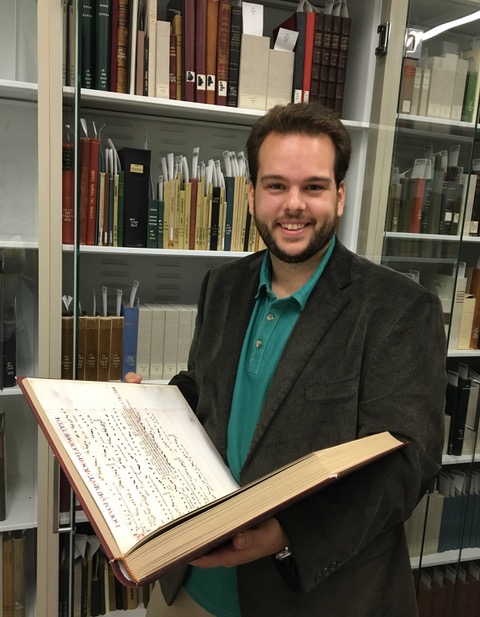
Cody Norling, 4th year candidate for the PhD in Music (Musicology), was selected to serve as editing research assistant for Dance Research Journal, the flagship English-language journal in the international field of Dance Studies, published by Cambridge University Press and co-edited by Rebekah Kowal, Department of Dance DEO.
“I am thrilled by the opportunity to work directly with editors, reviewers, and authors in this exciting pilot program,” said Norling. “I am working toward a competitive presence in the academic job market, balancing a growing teaching portfolio with continued scholarly output. Editing, communicating, and collaborating are all valuable tasks which are applicable across my future responsibilities as a teacher, researcher, and colleague. This editing research assistantship will be an opportunity to continually develop the practical and professional skills necessary for a career in academia.”
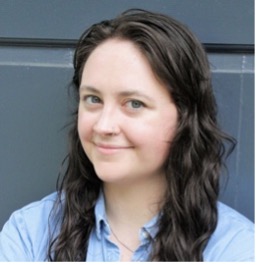
Corinne Watts, candidate for the PhD in Anthropology (third year) was also selected to serve as the editing research assistant RA, for the Journal of Archeological Method and Theory, the leading journal in its field, co-edited by Margaret Beck of the Department of Anthropology.
“While at the University of Iowa, I have continually developed my skills as an academic researcher, instructor, and writer,” shared Watts in her application. “These skills will not only serve me during my remaining time at this institution but will be necessary as I pursue work as a tenure-track professor after graduation. This assistantship is an opportunity for me to improve my skills related to research and publishing that will allow me to support my students and peers during future academic endeavors.”
Community Engagement Graduate Assistantships for the Latham Science Engagement Initiative/Iowa Biosciences Academy
Finally, CLAS also awarded two halftime Community Engagement Graduate Assistantships for the Latham Science Engagement Initiative and Iowa Biosciences Academy to Briante Najev and Kelley Withers, both PhD candidates in the Ingregrated Biology (iBio) program.
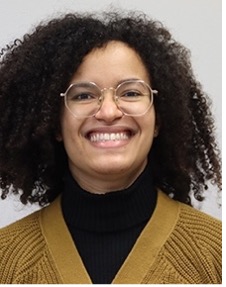
In her application, Najev, who has a focus on evolution and ecology in her research under advisor Maurine Neiman, articulated the opportunity this assistantship represents:
“My goals for the future are to pursue a career as a biologist for an agency that serves the public and our public lands like Fish and Wildlife or the Forest Service. I believe that this graduate assistantship will provide major benefits for my future. Creating seminars, editing scientific articles, and polishing my own and others’ professional development skills are powerful ways of internalizing and teaching a suite of important tools. Writing is critical for virtually all science careers, so the writing opportunities afforded by this fellowship will be especially valuable.”
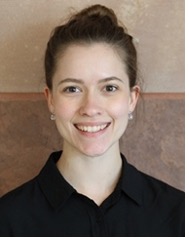
Withers, who is conducting her thesis research in Dr. Chi-Lien Cheng’s laboratory, described similar benefits in her own application letter:
“To me, managing the editorial responsibilities of the Synthesis undergraduate journal is an exciting opportunity to broaden my expertise in writing…I am pursuing a career in academia; therefore, it is of great interest that I develop and strengthen my skills in curriculum design, scientific publication, and undergraduate mentoring. This assistantship provides the perfect opportunity to accomplish this goal.”
Awardees for this competition were selected by Christine Getz, Associate Dean for Graduate Education and Outreach and Engagement, in consultation with: Danny Kalatschi, director of the Magid Center for Undergraduate Writing; Lori Adams, director of the Latham Center/Iowa Biosciences Academy; the editors of the Dance Research Journal (Nadine George-Graves Northwestern University, and Rebekah Kowal, University of Iowa) and The Journal of Archeological Method and Theory (Valentine Roux, University of Paris-Nanterre and Margaret Beck, University of Iowa); Nick Benson, director of the UI Office of Community Engagement; and representatives from the CLAS Graduate Education Policy Committee.